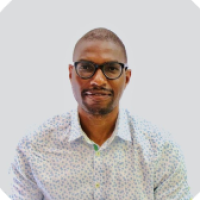
Favorite quote: “Life is about learning and unlearning, growing, sharing and loving ourselves and others into a state of unconditional and peaceful acceptance.”
What is your story (tell us about yourself)?
I am passionate about social innovation and entrepreneurship. I have founded and grown various start-ups, some of which have gone on to impact lives across the globe. I am also an active investor in great ideas and work with promising start-ups in various parts of the world, helping with mentoring and balancing financial returns with social impact. Day to day, I am a partner at Utando Impact, a boutique social investment consultancy based in Los Angeles (USA) and Cape Town(SA). At Utando, we advise corporations, philanthropic organizations and individuals as well as start-ups on strategic social investment and impact analysis. I am also an active investor in The Woodmongers, a bespoke luxury hardwood furniture manufacturer and retailer that manufactures luxury hardwood furniture through sustainable forestry. Born in a small town of Chiredzi, Zimbabwe, I migrated to South Africa and have recently been splitting my time between South Africa and the United Stated. I have witnessed first-hand how poverty, a lack of access to education and poor health infrastructure amongst other “wicked problems” perpetuate inequality and a lack of access to opportunities. I have made it my lifetime goal to do all I can to enable others help themselves.
When did you start your first business and what inspired you to start?
My first business was in high school, I suppose it wasn’t really a business, I was trading food at my boarding school. Well, my first real business was about twenty years ago. I am mostly excited about my recent ventures; Utando Impact – four years of fun making an impact in business and communitiesand The Woodmongers where I get to lose myself in the bush looking for unique pieces of wood and bringing them to life.
What is the Key Objective(s) and Vision of your business? (Has it changed overtime or is has it always been this?)
With Utando Impact, the vision has always been and still is really simple – changing lives through investing in our communities. The strategy evolves as we constantly adapt to the dynamic nature of the social innovation space and consistently seek new ways of responsibly investing as well as advising on corporate investment strategy and community partnerships.
What challenges did you face in your journey? What’s the biggest obstacle you had to overcome (are still overcoming)?
The biggest challenge for me was self-doubt. The problems our marginalized communities face can be daunting. There probably were easier alternatives for me with regards to earning a living. However, I wanted to do something more meaningful, more purposeful; and yet I was never sure if I could pull it off. I doubted myself and my ideas constantly. In that however, I also found my strength, in the sense that I strived for self-awareness, self-compassion and gratitude and with that came the realization that I just have to work hard, do my best and be adaptable.
How did you manage to navigate your company through this period of the Covid-19 pandemic? (What business strategies/operational adjustments have you made over this period and how has it impacted your business model?)
With Covid-19, we were lucky that we had lean processes to begin with, and some cash reserves. This enabled us to meet our obligations throughout Covid-19, including keeping all our employees and paying them. Of course, this was a privileged position to find ourselves in and are aware that for a lot of business, Covid-19 brought really unique and difficult challenges. What worked most for as was being innovative and adaptable. We were thinking, as we constantly do, about how we can adapt to new ways of doing business, new ways of delivering value to our customers and employees and new ways of just thinking about the problems we are trying to solve.
How do you approach networking and building partnerships in your industry?
Networking and building partnerships is are really key to the success of our business. We are not afraid to network, to learn and to ask for help, and in turn we are always willing to help and to share knowledge and ideas. We attend network events, we stay active in the ecosystem and we stay genuine, honest and well intentioned in our interactions.
Do you have (or ever had) a mentor in your journey, and do you believe it helped (if yes, in what way)?
Absolutely yes, I have mostly had different mentors and different stages of my life and business; which was absolutely useful in terms of bouncing ideas and building a support structure. My mentors were great resources for meeting new people too. For this reason, I am devoted to giving back through mentoring young and upcoming start-ups. I believe that success or failure could very well depend on it.
What is your perspective on the South African entrepreneurial landscape before and after Covid-19 pandemic? (Would you say the “new normal” context drives more or less opportunities for entrepreneurs?) How can entrepreneurial policy development aid in expanding opportunities in this new context?
I do believe that the ‘new normal’ has brought with it challenges for sure, but mostly tremendous new opportunities for entrepreneurs. I think about entrepreneurial policy development in terms of favorable investment incentives, perhaps tax breaks and so on. There is a wide array of issues a robust entrepreneurial policy can address to not only encourage social entrepreneurship but also to ensure that entrepreneurs succeed.
In your opinion, what are the secrets to being a successful entrepreneur?
Being adaptable and hard work. Always be open to learn, unlearn and repeat.
What advice do you have for young entrepreneurs?
Wonder is the beginning of wisdom – Socrates. So be curious, challenge yourself, let your mind wonder and most of all, as my father always said; WORK HARD, it pays off; eventually.
